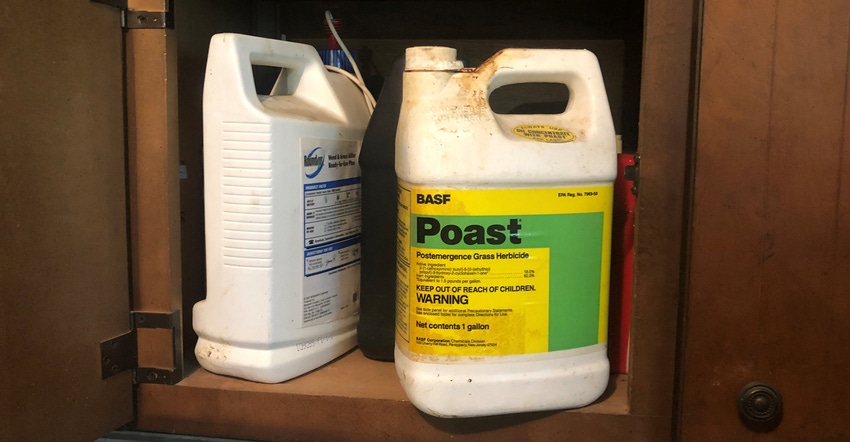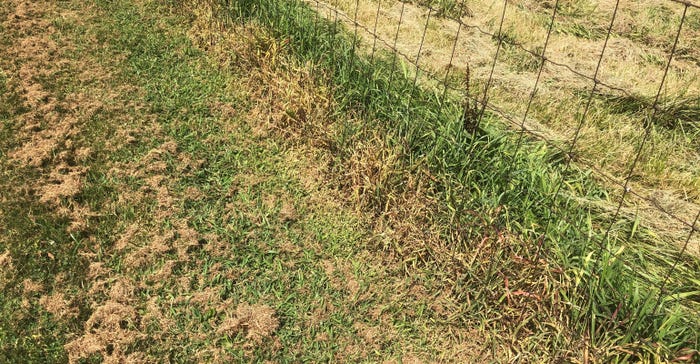
Some herbicides are hard to get this year. If that sends you into your pesticide storage area to see what’s on hand, can you apply herbicides you find there? If not, how should you dispose of them?
Fred Whitford, director of Purdue University Pesticide Programs, says it depends on age of the chemical, what it is, how it was stored and whether the container is open. Since the issue is complex, he and a team of experts prepared PPP-142, Is This Pesticide on My Shelf Still Good?
Making the decision
Expiration date, warranty and shelf life sometimes are used interchangeably, but each has its own meaning, Whitford explains.
“The expiration date is set by the manufacturer and says that the product will perform as expected if stored properly and used by that date,” Whitford says. “Most pesticides do not carry expiration dates. They may or may not have the date of manufacture stamped on the container.
“Most pesticides are still effective and could be used within three years of manufacture if they were stored properly. If the container is open, don’t apply the product without asking lots of questions.”
A warranty assures you there is a period when the pesticide is guaranteed to work. If it doesn’t, the company will replace it. Meanwhile, Whitford says shelf life refers to how long a product will remain effective after expiration and warranty dates pass. There is no set time limit for long-term stability of pesticide formulations. Storage conditions like freezing temperatures greatly influence how long a product remains effective, Whitford says.
Also, make sure the product is still labeled with EPA and the Office of Indiana State Chemist. If the label was revoked, it’s no longer legal to apply.
An example
To illustrate, a grass herbicide from an open jug, partially full and stored in a building for at least 30 years where it does not freeze, was used to make a gallon of spray solution and sprayed with a hand-held sprayer on grass along a fencerow.
Did it work? Look at the photo below and judge for yourself. The grass on the near side of the fence was sprayed, and the grass on the far side of the fence was not sprayed. The photo was taken one week after application.

The grass was dying and was completely brown two weeks after application.
So, what should happen to this pesticide? Since it’s well beyond the two- to three-year period, Whitford says you shouldn’t trust it to work properly. Even if it was within three years, since the jug is open, it should not be used.
Obviously, the chemical is still active. “Dispose of it properly,” he advises.
The Office of Indiana State Chemist usually sponsors pesticide cleanup days at various locations during the summer. Watch for these opportunities to properly dispose of product you can no longer apply.
About the Author(s)
You May Also Like




